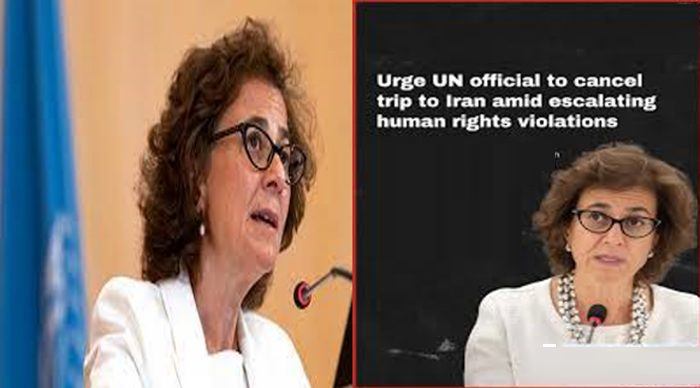

Recently, the Iranian Resistance has been vocal in demanding the intervention of United Nations special rapporteurs to investigate the dire situation in Iran’s prisons, particularly focusing on the conditions of women and political prisoners. This call represents not just the voice of the Resistance, but echoes the collective outcry of the Iranian populace, prisoners, and their families, who have long suffered under the regime’s oppressive policies.
The regime’s track record of 70 condemnations in the General Assembly and the Human Rights Council for its systematic human rights violations lends weight to these suspicions.
Presently, Iran’s prisons hold thousands under death sentences. The country’s top officials, including the Supreme Leader, the President, and key judicial authorities, have been implicated in ongoing crimes against humanity over the past 45 years. This includes the mass execution of 30,000 political prisoners in 1988, a stark reminder of the regime’s brutal legacy.

Despite repeated requests from the United Nations General Assembly and the Human Rights Council, UN special rapporteurs on Iran’s human rights situation have been denied access to the country for 28 years. The upcoming visit of the Deputy High Commissioner is thus seen with skepticism, as it is feared to be limited to controlled interactions with regime leaders and orchestrated scenarios, rather than an unbiased investigation into the regime’s abuses.
These include revealing the number and identity of executed political prisoners, disclosing the burial sites of those killed under torture or in uprisings, and providing detailed information on the conditions of political prisoners, especially women. The regime must also agree to regular and unrestricted access for UN rapporteurs and international human rights organizations to prisons and detainees.

The Iranian Resistance has expressed its readiness to assist in this endeavor, offering to send representatives to accompany UN officials on their visit to Iran. This gesture aims to prevent the regime from deceiving the international community and using the UN mechanisms to justify its oppressive actions.
This situation calls for a vigilant and robust response from the international community to ensure that the human rights of the Iranian people are not further betrayed.

MEK Iran (follow us on Twitter and Facebook), Maryam Rajavi’s on her site, Twitter & Facebook, NCRI (Twitter & Facebook), and People’s Mojahedin Organization of Iran – MEK IRAN – YouTu







